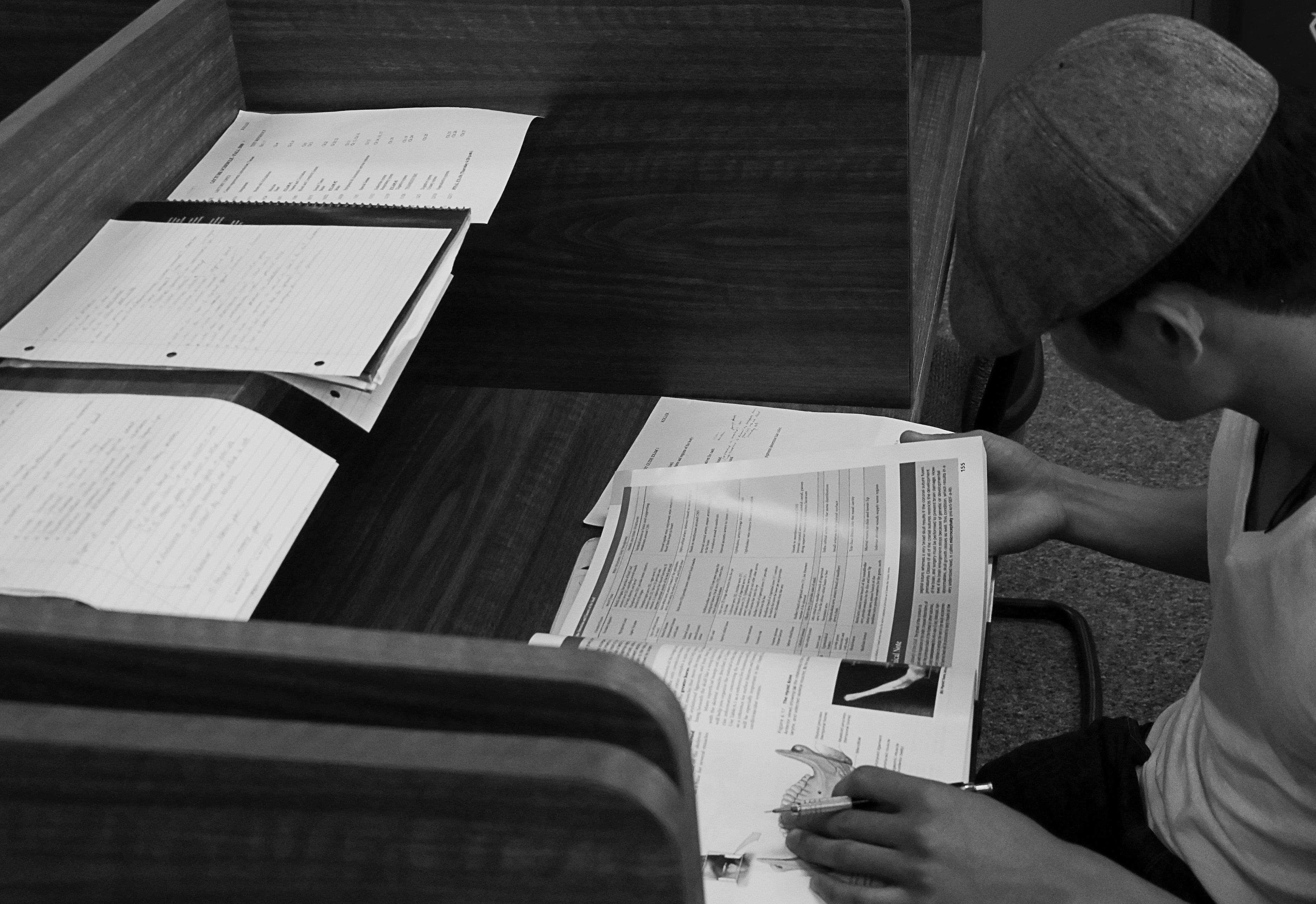
1 minute read
Tips and tricks or conscientious effort
Pierce students and teachers share how to get by in those hard classes
Elliot Golan / Roundup
“‘I’ before ‘E’ except after ‘C’” is just one of the phrases we learned to help us remember things as kids.
Tips and tricks for studying have been a part of students’ modus operandi since entering school. At the college level, things do not need to change.
“Once you learn to read, you can’t not read something,” said Anthony Gabrielli, Pierce College professor of political science.
Reading is a passive function, according to Gabrielli.
“The problem is recollection,” Gabrielli said.
Gabrielli believes text is absorbed into the brain without the reader needing to vocalize the words in their mind. He suggests students clear their minds and develop keys for remembering the information.
Gabrielli said that scent is a key he has had success with.
“When reading political science, use coconut. When reading for psychology, use lavender,” he said.
Gabrielli picks up a 100-page political science book, flips through it quickly, and states he could read it in about 20 minutes. He said this form of speed-reading can greatly assist students in getting through all they need to assimilate for classes.

Gabrielli began mastering this method in graduate school after finding out he would be required to read a daunting 50,000 pages in his first semester.
With many students juggling school, in-class time, work, and study time, time management can be a concern. Gabrielli has yet to have a student return with a success story.
“Students don’t have as much success because of the speed at which things are happening. They don’t have time to try something new,” Gabrielli said.
He insists that though the method will likely not work the first or sec- ond time, “practice, training, and being dedicated” is essential.
“They don’t trust their eyes,” Gabrielli said. He believes this is the main reason students are unable to read at this pace.
Students have many different problems when it comes to studying.
“Memorizing all the information is tough,” said Pierce student Sasha Mazor, 17, as she sat reading outside of the campus library. She said writing down important information is the best way for her to remember course material.
However, today’s academic structure often offers more resources than the classic textbook. Many classes and textbooks come with accompanying online material.
Kinesiology major Tylea Powell, 18, is thankful for this.
“It gives a specific format of what they’re talking about,” Powell said about Web sites used for studying.
Pierce students also have access to the Center for Academic Success, formally The Learning Center, on campus. The Center for Academic Success is located in Room 1613, north of the S. Mark Taper Foundation Botanical Garden.
It offers a range of services from free subject-area tutoring to computer-assisted learning programs. The Center also has an adjacent computer lab for easy access to resources.
“There are no tricks. There is only conscientious effort,” said Kathleen Boddicker, Center director.
The problem is repetition, according to Chris Yun, 22-year-old math major.
“It’s about doing the same thing over and over,” Yun said.
His belief seems to be in line with Gabrielli’s.
“Your brain is like any other muscle in your body. If you train it, it will do what you want it to,” Gabrielli said.








